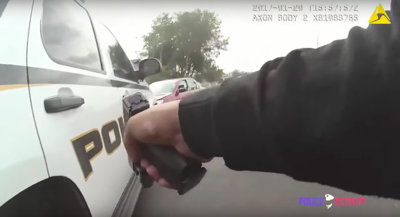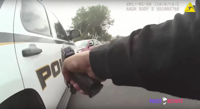(The Center Square) — Indiana law enforcement agencies can obtain matching grants of $800 per officer through the state’s Department of Homeland Security to provide body cameras for their personnel.
The Indiana Local Body Camera Grant, now in its second year, is funded by federal tax dollars through the American Rescue Plan, which was created in 2021 to help the country recover from the economic fallout of COVID-19.
The ILBC grant program was created to help city, town and county law enforcement agencies acquire body-worn cameras for their essential personnel.
Indiana has more than 630 law enforcement agencies, including 445 municipal departments, 92 county, 24 university and 22 public school police departments, 13 hospital departments, 11 transit agencies and 10 state law enforcement agencies.
To be eligible, the law enforcement agency must be able to match a portion of the funds awarded and must certify that it will implement a body-worn camera policy before spending grant funds. Also, matching funds must be used for a purpose approved by the grant program. That includes costs like storage of the equipment, software, licenses, services and training.
A law enforcement agency must be able to provide matching funds for this grant. Matching contributions for this program must be program allowable. This can include camera equipment costs and other body-worn camera program costs such as storage, software, licenses, services and training. Only one grant award will be made per agency.
County agencies receiving a grant must match 50% of the funding if the county population is 50,000 or above, or 25% of the funding if county population is below that number.
City or town law enforcement agencies must match 50% of the grand amount if their municipality has a population of 10,000 or above, or 25% if the population is less than 10,000.
Applications can be made through the IDHS from Nov. 14 to Dec. 15.
Indiana State Troopers have been required to wear body cameras since 2001.









